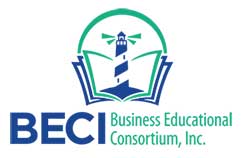Business Start-Up Tips
1. Conduct market research:
Market research is vital to small business especially in the early stages of business development. It helps to take the guesswork and risk out of their venture. Market research also helps entrepreneurs create their sales funnels and resources to promote their products or service
2. Write Your Business Plan:
A good business plan guides you through each stage of starting and managing your business. You’ll use your business plan as a roadmap for how to structure, run, and grow your new business. It’s a way to think through the key elements of your business. Business plans can help you get funding or bring on new business partners. Investors want to feel confident they’ll see a return on their investment. Your business plan is the tool you’ll use to convince people that working with you — or investing in your company — is a smart choice.
3. Fund your business:
It costs money to start a business. Funding your business is one of the first and most important financial choices most business owners make. How you choose to fund your business could affect how you structure and run your business.
4. Pick your location:
Where you locate your business depends in part on the location of your target market, business partners, and your personal preferences. In addition, you should consider the costs, benefits, and restrictions of different government agencies. Your business location is one of the most important decisions you’ll make. Whether you’re setting up a brick-and-mortar business or launching an online store, the choices you make could affect your taxes, legal requirements, and revenue.
5. Choose your business structure:
Your business structure affects how much you pay in taxes, your ability to raise money, the paperwork you need to file, and your personal liability. You’ll need to choose a business structure before you register your business with the state. Most businesses will also need to get a tax ID number and file for required licenses and or permits. Choose carefully. While you may convert to a different business structure in the future, there may be restrictions based on your location. This could also result in valid tax consequences and unintended dissolution, among other complications. Consulting with business counselors, attorneys, and accountants can prove helpful.
6. Choose a business name:
You’ll want to choose a business name that reflects your brand identity and doesn’t clash with the types of goods and services you offer. Once you settle on a name you like, you need to protect it. There are four different ways to register your business name. Each way of registering your name serves a different purpose, and some may be legally required depending on your business structure and location. Each of these name registrations are legally independent. Most small businesses try to use the same name for each kind of registration, but you’re not normally required to.
- Entity name protects you at a state level
- Trademark protects you at a federal level;
- Doing business as (DBA) doesn’t give legal protection, but it might be legally required
- Domain name protects business website address
7. Register your business:
Your location and business structure determine how you’ll need to register your business. Determine those factors first, and registration becomes very straightforward. For most small businesses, registering your business is as simple as registering your business name with state and local governments. In some cases, you don’t need to register at all. If you conduct business as yourself using your legal name, you won’t need to register anywhere. But remember, if you don’t register your business, you could miss out on personal liability protection, legal benefits, and tax benefits.
8. Get your federal ID number*
(*Note: Important)
Your Employer Identification Number (EIN) is your federal tax ID. You need it to pay federal taxes, hire employees, open a bank account, and apply for business licenses and permits. It’s free to apply for an EIN, and you should do it right after you register your business. Your business needs a federal tax ID number if it does any of the following:
Pay employees, operates as a corporation of partnership, file tax returns, open bank account, pay taxes and other business uses. Apply for an EIN with the IRS assistance tool. It will guide you through questions and ask for your name, social security number, address, and your “doing business as” (DBA) name. Your nine-digit federal tax ID becomes available immediately upon verification.
9. Apply for licenses and permits:
Keep your business running smoothly by staying legally compliant. The licenses and permits you need for your business will vary by industry, state, location, and other factors.
10. Open a business bank account
As soon as you start accepting or spending money as your
business, you should open a business bank account. You can open a business bank account once you’ve gotten your federal EIN.
DONATE & SUPPORT our 501 c 3 nonprofit:
Your generous donation will help Business Educational Consortium, Inc. help small businesses in need of business development services at an affordable cost.
